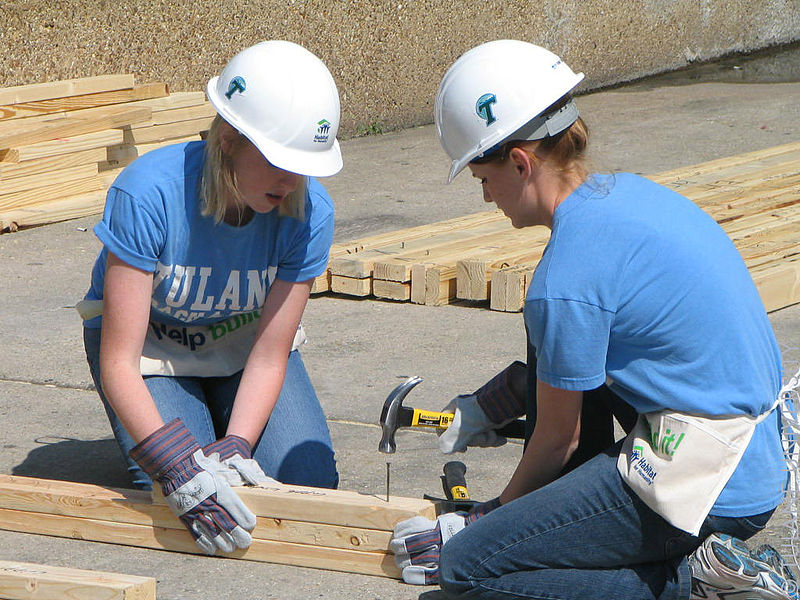This column was written as a part of our ongoing Face off series. To read the corresponding column, click here.
Views expressed in opinion columns are the author’s own.
The United States bestows upon its citizens many freedoms. We are free to life, liberty and the pursuit of happiness. Americans can climb the social ladder, defy all odds and attain monumental achievements. America does not currently conscript citizens into national service and we are free to pursue the lives we seek. But one can be easily lost in self-centeredness. Therefore, as part of our high school education, we should ensure that our youth — who will one day determine the fate of our country — learn empathy, hard work and sacrifice through the eye-opening experiences that community service provides.
Throughout the world, nations conscript their citizens into mandatory military service. Countries such as Israel, Greece, Austria and South Korea, among many others, draft their citizens into national service. Their youth both sacrifice for the common good and learn about the vast disparities in the backgrounds of their compatriots. America has no such gathering point for all of society. Sure, Americans root for the red, white and blue when the Olympics roll around, but day to day we agonize over our own burgeoning to-do list of occupational assignments, personal errands and individual ambitions. Time spent eschewing these desires and concentrating on communal progress is hard to find. Thus, voluntary acts in which individuals coalesce to enhance the community at large should be mandated for high school students. This directive will educate students about the importance of social involvement at a crucial age, which will teach them altruism and encourage the continuation of worthwhile acts in their adult lives.
I present my edict of mandatory community service as follows. All high school students nationwide, both public and private, must participate in 20 hours of unpaid community service per school year. Such exceptions will be made to students who must work to provide for their family. Students will propose a volunteer opportunity that interests them to a school adviser, who will evaluate the merit of the proposal. I also encourage students to unite and create their own innovative volunteer projects and organizations. Such initiative and teamwork will improve the students’ leadership skills, imbue in them a respect and understanding of entrepreneurship and inspire the community through their passion. This will ensure that volunteering both benefits the community and engages the student in an area that excites him or her.
Additionally, community service sensitizes people to the travails of others, while also providing volunteers with valuable interpersonal skills. High school students are often unaware of what direction to follow after graduation, and volunteering opens them up to a multitude of potential paths. By stepping outside of their comfort zone, volunteers interact with people from different backgrounds to solve difficult problems that the community faces. At a local food bank, students can connect with people from less fortunate economic backgrounds and learn from these peoples’ life experiences. Or, a student can adopt a “grandfriend” at a nearby senior citizens center and connect on a more intimate level with an elderly person who might not have family close by to visit him. Students can also organize a charity run or bike ride that benefits a specific charity, both connecting the community to this cause and generating useful funds. Such inspirations are best invoked by experience; when individuals see and feel a problem in person, they are driven to great lengths to hunt down a solution for the benefit of those suffering.
Not everything in life is meant to be easy. Nor is everything meant to serve the self. With mandated community service, we can help our youth thrive and create a better community for the future. They will both overcome hurdles and improve the community as a whole. These achievements will mold students into more knowledgeable, driven and altruistic citizens.
Joseph Kuttler is a freshman English major. He can be reached at Jkuttler@umd.edu.



